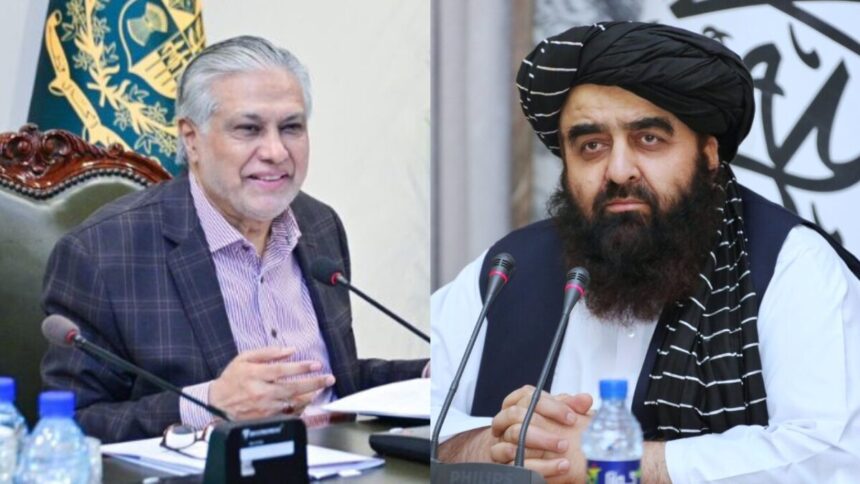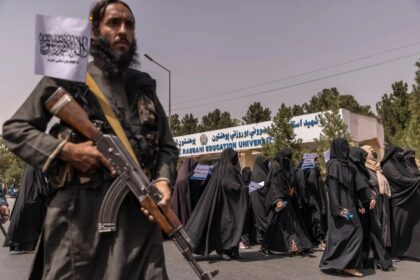RASC News Agency: Despite recent visits by Taliban officials to Islamabad and what appeared to be cordial high-level meetings with Pakistani authorities, senior officials in Pakistan have once again made it unequivocally clear: there are no formal diplomatic relations with the Taliban regime in Kabul. In remarks delivered during an official visit to Malaysia, Pakistan’s Foreign Minister and Deputy Prime Minister, Ishaq Dar, reaffirmed that since the Taliban’s violent return to power in August 2021, no genuine state-to-state engagement has occurred. He described his recent visit to Kabul and the subsequent trilateral summit with Chinese and Taliban representatives as part of a limited trust-building effort, not a signal of diplomatic normalization.
“Let me be clear,” Dar stated, “Pakistan has not restored formal diplomatic ties with the Taliban. What exists is a limited and necessary channel of communication not recognition.” Meanwhile, Pakistan’s Foreign Ministry spokesperson, Mumtaz Zahra Baloch, expressed deep concern over the unabated presence of terrorist sanctuaries on Afghan soil under Taliban protection. She confirmed that during recent talks with the Taliban delegation, Islamabad “conveyed its security concerns in no uncertain terms.”
The focus of Islamabad’s anxiety is the Tehrik-i-Taliban Pakistan (TTP) an insurgent group ideologically aligned with the Taliban that has claimed responsibility for dozens of cross-border attacks on Pakistani security forces. Islamabad has repeatedly accused the Taliban of turning a blind eye or worse, offering covert support to the TTP, despite promises of curbing militant activities. Dar further criticized Pakistan’s earlier conciliatory approach toward the Taliban, calling previous open-border policies and informal backchannel negotiations “naive and dangerous.” According to him, such leniency had enabled extremist elements to regroup and operate with impunity, undermining regional stability and emboldening militant narratives across South and Central Asia.
Following the recent trilateral summit with Pakistan, China, and Taliban representatives, some regional analysts speculated that Beijing’s strategic and financial leverage might thaw the frozen ties between Kabul and Islamabad. China has increasingly positioned itself as a regional powerbroker in Afghanistan, motivated by economic interests and concerns about the spread of extremism to its western province of Xinjiang. However, those hopes have largely evaporated. Taliban leaders have shown no willingness to cut ties with militant proxies like the TTP, despite Beijing’s and Islamabad’s urgings. This has led some observers to recall a grim historical parallel: just as Mullah Omar, the Taliban’s founding leader, refused to hand over Osama bin Laden in 2001 ultimately leading to the collapse of his regime today’s Taliban appear similarly unwilling to abandon their ideological partners.
The Taliban’s refusal to act against transnational terrorist networks not only endangers Pakistan but also underscores the broader problem of treating the group as a legitimate government. Since seizing power, the Taliban have shown themselves incapable of responsible governance systematically dismantling human rights, silencing journalists, erasing women from public life, and enforcing brutal punishments without due process. Their posture toward regional diplomacy is no different: an authoritarian movement wearing the thin veneer of statehood. As Pakistan continues to weigh its strategic options, voices within Islamabad’s security and policy circles are urging caution. Engaging with the Taliban under the guise of pragmatism may inadvertently strengthen a regime that thrives on ideological absolutism, violence, and regional destabilization.
In a region as volatile as South Asia, where borders are porous and extremist ideologies metastasize rapidly, the cost of legitimizing the Taliban whether explicitly or through prolonged informal engagement may be far higher than anticipated.






